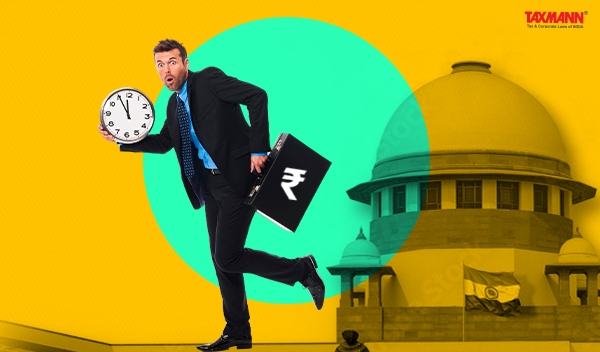Disallowing ITC for Late Returns Is Arbitrary as Late Fees and Interest Serve as Sufficient Deterrents | HC
- Blog|News|GST & Customs|
- 2 Min Read
- By Taxmann
- |
- Last Updated on 13 December, 2024

Case Details: Anand Steel v. Union of India - [2024] 169 taxmann.com 105 (Madhya Pradesh)
Judiciary and Counsel Details
- S.A. Dharmadhikari & Binod Kumar Dwivedi, JJ.
-
P.M. Choudhary, Sumit Nema, Sr. Advs., Arun Dwivedi, Anand Prabhawalkar & Piyush Parashar, Advs. for the Petitioner.
-
Sudeep Bhargava & Ms Khushbu Verma, Advs.a for the Respondent.
Facts of the Case
During the financial year 2018-19, the petitioner filed GST returns from April 2018 to March 2019 in FORM GSTR-3B along with the GST liability and late fee on outward supplies. The petitioner availed input tax credit correctly as per their inward supplies for the relevant period. Subsequently, a notice was issued by the Assistant Commissioner of COST to the petitioner proposing to disallow the ITC for the tax period 2018-19. The disallowance was proposed on the ground of late filing of return in FORM GSTR-3B. Aggrieved by the order, the petitioner filed a writ petition to the Madhya Pradesh High Court and contended that Section 16(4) puts arbitrary restrictions/limitations on the right to avail input tax credit.
High Court Held
The Madhya Pradesh High Court held that the provision of Section 16(4) of the CGST Act, which restricts the claim of ITC only on the ground that a return is filed after the date prescribed, is arbitrary. The tax payer who is claiming the ITC has already made the payment of tax to the supplier from whom the foods and services have been received. The payments include both the cost of service or goods and the amount of Tax. Thus, the taxpayer cannot be deprived of his right to claim ITC. The imposition of a time limit through Section 16(4) would supersede or override the scheme of the statute.
The operation of Section 16(4) makes the non-obstante Section 16(2) meaningless since Section 16(2) has overriding effect on Section 16(4), and Section 16(2) has been drafted in a manner which shows clear legislative intent that it is not subject to Section 16(4). Moreover, the payment of late fees and interest are already there as deterrents for the taxpayers forcing them to be disciplined. Under such circumstances, saddling with double payment of tax by way of Section 16(4) is arbitrary and capricious.
Disclaimer: The content/information published on the website is only for general information of the user and shall not be construed as legal advice. While the Taxmann has exercised reasonable efforts to ensure the veracity of information/content published, Taxmann shall be under no liability in any manner whatsoever for incorrect information, if any.

Taxmann Publications has a dedicated in-house Research & Editorial Team. This team consists of a team of Chartered Accountants, Company Secretaries, and Lawyers. This team works under the guidance and supervision of editor-in-chief Mr Rakesh Bhargava.
The Research and Editorial Team is responsible for developing reliable and accurate content for the readers. The team follows the six-sigma approach to achieve the benchmark of zero error in its publications and research platforms. The team ensures that the following publication guidelines are thoroughly followed while developing the content:
- The statutory material is obtained only from the authorized and reliable sources
- All the latest developments in the judicial and legislative fields are covered
- Prepare the analytical write-ups on current, controversial, and important issues to help the readers to understand the concept and its implications
- Every content published by Taxmann is complete, accurate and lucid
- All evidence-based statements are supported with proper reference to Section, Circular No., Notification No. or citations
- The golden rules of grammar, style and consistency are thoroughly followed
- Font and size that’s easy to read and remain consistent across all imprint and digital publications are applied



 CA | CS | CMA
CA | CS | CMA
